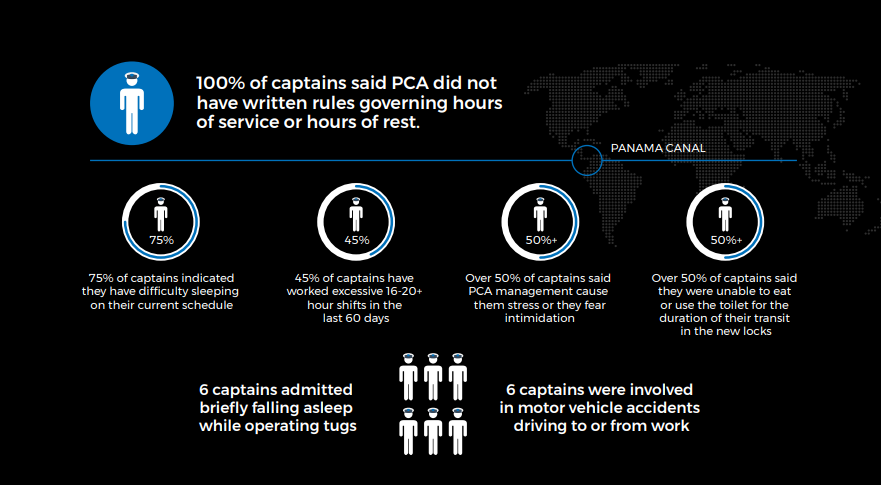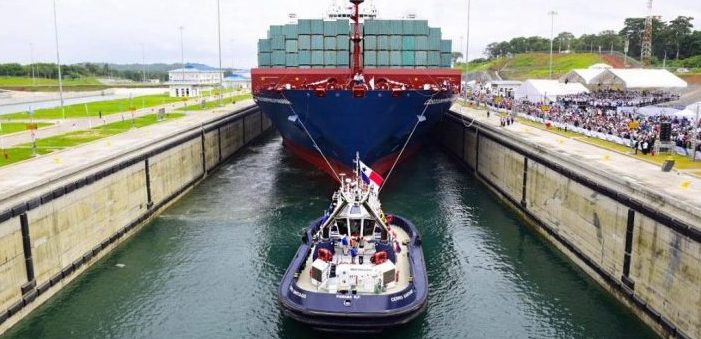The ITF issued a report investigating the relationship between captains’ fatigue and the operational safety of the Panama Canal, and the relationship between fatigue and the captains’ physical and mental health, after the Panama Canal’s decision to reduce the number of tugboat crew this year. Fifty-five captains, over a third of active captains in the Panama Canal, were interviewed for the study.
To remind, tugboat Captains refused to perform their operations in the Canal in early 2018 to express their opposition to the serious serious health and safety concerns raised as a result from the Panama Maritime Authority’s decision to reduce the number of crew on tugboats. In response, the Panama Canal announced it would apply sanctions to some captains of tugboats that affected the traffic through the neopanamax locks, “by refusing to comply with a work instructions.”
Meanwhile, the ITF reported that, Within two years of the opening of the new canal, two accidents occurred in the Canal, both within two hours after midnight, and at least one of which was directly attributed to tugboat captain fatigue.
As a result, ITF commissioned a study to determine the extent, if any, to which tugboat captains were fatigued by their work schedules, and make recommendations, based on the findings, to improve the safety of Panama Canal Operations.
Key findings
- Panama Canal captains’ work schedules are fatigue inducing.
- Captains are being required to work excessive shifts, 12 to 20+ hours, with minimum or no breaks and insufficient rest periods.
- Excessive shifts and insufficient rest is disrupting captains’ circadian sleep cycles.
- Majority of the captains interviewed reported work-induced fatigue.
- Captains’ work schedules have adverse effects on the their health, exacerbating pre-existing conditions.

Recommendations
The ITF report:
- Calls on the PCA to establish an independent entity to oversee the safety of Panama Canal operations to investigate all occupational accidents, occupational diseases, and maritime accidents, following IMO protocols and best medical practices.
- Compels the PCA to implement a fatigue risk management system to ensure operational safety and reduce exposure to work-induced adverse health effects.
- Recommends that the PCA to involve tugboat captains in decisions concerning tasks that fall within their area of responsibility, their working conditions and solutions to work-related issues.
- Advises the PCA to restore the second captain during transits through the new locks.
Explore more herebelow:






























































